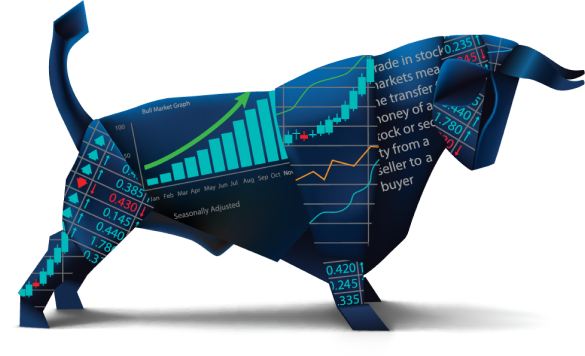What Is a Market Index?
A market index is a hypothetical portfolio of investment holdings that represents a segment of the financial market. The calculation of the index value comes from the prices of the underlying holdings. Some indexes have values based on market-cap weighting, revenue-weighting, float-weighting, and fundamental-weighting. Weighting is a method of adjusting the individual impact of items in an index.
Investors follow different market indexes to gauge market movements. The three most popular stock indexes for tracking the performance of the U.S. market are the Dow Jones Industrial Average (DJIA), S&P 500 Index and Nasdaq Composite Index. In the bond market, Bloomberg is a leading provider of market indexes with the Bloomberg U.S. Aggregate Bond Index serving as one of the most popular proxies for U.S. bonds.1 Investors cannot invest directly in an index, so these portfolios are used broadly as benchmarks or for developing index funds.

Key Takeaways
Market indexes provide a broad representative portfolio of investment holdings.
Methodologies for constructing individual indexes vary but nearly all calculations are based on weighted average mathematics.
Indexes are used as benchmarks to gauge the movement and performance of market segments.
Understanding a Market Index
A market index measures the value of a portfolio of holdings with specific market characteristics. Each index has its own methodology which is calculated and maintained by the index provider. Index methodologies will typically be weighted by either price or market cap. A wide variety of investors use market indexes for following the financial markets and managing their investment portfolios. Indexes are deeply entrenched in the investment management business with funds using them as benchmarks for performance comparisons and managers using them as the basis for creating investable index funds.
Market Index Methodologies
Each individual index has its own method for calculating the index’s value. Weighted average mathematics is primarily the basis for index calculations as values are derived from a weighted average calculation of the value of the total portfolio. As such, price-weighted indexes will be more greatly impacted by changes in holdings with the highest price, while market capitalization-weighted indexes will be most greatly impacted by changes in the largest stocks, and so on, depending on the weighting characteristics.

News

How to Trade Decentralized Perpetual Swaps on MCDEX
Learn what perpetual swaps are and how to trade these crypto derivatives on MCDEX...

What is the Metaverse? What Role Will NFTs Play In It?
Ever heard of the metaverse? The term has been thrown around a...

Ethereum’s (Remaining) Journey to Ethereum 2.0
Ethereum’s long and arduous journey towards Ethereum 2.0 is slated to successfully end in 2022...

